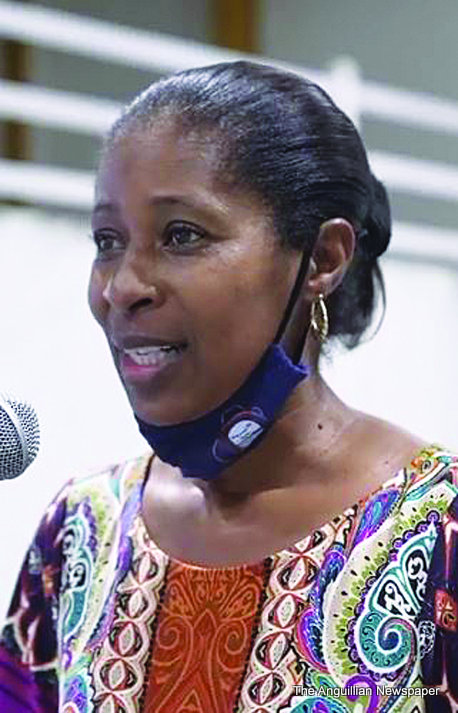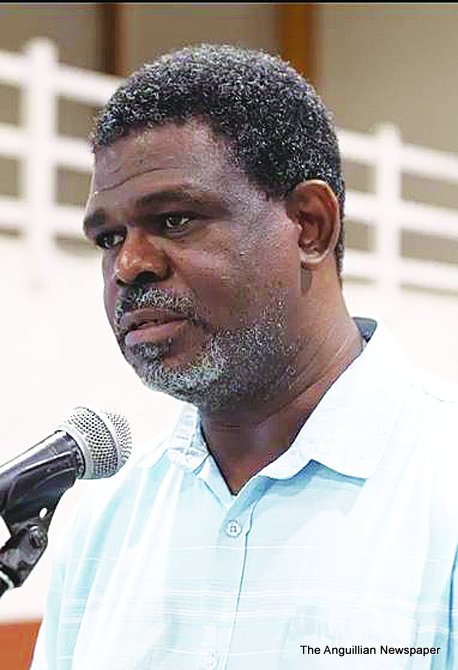Over the past seven weeks, the Ministry of Home Affairs had been conducting town hall meetings throughout the island in order to give the populace an opportunity to voice their views on points of interest for constitutional reform. The community meetings came to a close on Thursday night, October 14th, when the largest gathering of the series was hosted at the Rodney MacArthur Rey Auditorium.
Generally, though a limited number of folks in the community spoke their mind on such matters as voting rights in the House of Assembly, the Speaker of the House’s alignment with a particular party, and the realignment of island’s electoral districts – the dominant point of contention, over the entire seven-week period, hinged on the definition of marriage and, in particular, the subject of same-sex marriage. The Minister of Home Affairs, Hon. Ken Hodge, called it “a thorny issue in our constitutional reform”.
With regard to the right to marriage in the draft constitution, in Section 16 a compromise proposal is laid out, which reads: “Every man and woman of marriageable age, as determined under any law, has the right to marry and to found a family in accordance with laws enacted by the legislature.”
In the language of that compromise proposal, there tends to be the hidden notion that it would be legal for same-sex marriages to take place just as well heterosexual marriages.
During the meeting on Thursday night, October 14th, several persons from the Christian Community stood by to voice their views against the matter of same-sex marriage.
Among the main speakers was Pastor Dwayne Adams, who stressed: “The will of God, as expressed in the Holy Bible, is eternal and unchanging, whereas the will of man is fickle… Today we are looking at same-sex marriage seriously. We are giving it such serious consideration, and making it sound as if it is such a big issue when, in truth, origins of the issue are not here. They are not in Anguilla. These same-sex ideologies and the forces behind them, do not stem from Anguilla. This is not an Anguillian issue.”
“In fact,” he continued, “this is not even a Caribbean issue. (The audience applauded.) I do not see places like Jamaica, for example, kicking up about this. I would go as far as to say that since most of us have our roots in Africa, this is not even an African issue. Many African nations have been threatened, like we have been, that unless they sign on to the gay agenda their aid could be denied…But they have stood their ground.
“Tonight, I add my voice to those of the many Anguillians who have signed petitions, and who are still a God-fearing people. It is their desire that we follow the outline for marriage given to us by our Creator, in that marriage should remain as a sacred union between one man and one woman.”
Teacher Avenella Griffith then gave her views on the gradual erosion of God’s principles and the damage that same-sex marriage can cause to our foundation as a Godly people:
“Our constitution is not just about the laws that we should be governed by,” she said, “but our constitution should reflect who we are as a people. As Mr. David Carty puts it, our constitution should reflect our culture, and it must represent us as a people to our core.” She pointed out emphatically, “Our constitution is our foundation. And it is important that we know the base upon which we lay our foundation.
“So far, Anguilla has placed its foundation of many Godly principles, and we have seen the benefits of such. I believe God has protected us in so many different ways because we have built our lives and our country upon His principles. Over the years, however, we have been shifting away from those principles and now we see that the mechanisms of same-sex marriage want to further erode our Godly principles.
“When it comes to our laws, they were always aligned with nature and the ‘good-rule book’, the Bible. The trend now is to move away from biblical laws, and in doing so it is a risk that we end up displeasing the one whose hand has protected us from so many calamities…Remember that what we put in our constitution is going to either make us or break us…When you play with our foundation, and move it from a rock and place it on sand, the Bible calls that being foolish.”
Pastor Jerome Harrigan spoke with the hope that the constitution maintains the Biblical view of marriage. He commented: “I stand to support the Biblical view of marriage, as being between one man and one woman. As it is proposed in this compromise, we do not see this Biblical view being upheld. Why Biblical? It is because God, the Creator, as the architect of everything that exists, has already given the mandate for life — and marriage. His Word, the Bible, is the manual for us to live by. God is in control of everything, and if we ignore that fact, even in regard to sacred marriage, then I think we will be going down the wrong path.”
Pastor Philip Gumbs is a strong advocate who champions Biblical marriage, and he, as he had done in previous meetings, made another contribution that stood in sharp contrast to the same-sex marriage agenda.
All of the above views, which vehemently supported the institution of traditional marriage for the constitution, stood in sharp contrast to views generally shared by Former Magistrate and Judge, Mr. Don Mitchell. He was invited at the final meeting to give a few closing remarks on the subject, and stated in part:
“The right for gay people to marry is a fundamental human right, recognised by dozens of countries around the world. I am confident that if a poll was taken in Anguilla, most persons would be in favour of gays and lesbians having the same right to marry as heterosexuals do. Yet, a voluble minority still opposes it. This right is embedded in the Universal Declaration of Human Rights.”
He continued, “The UK, in accepting this Declaration, made it binding on Anguilla. Any Anguillian law that contravenes it is illegal. The UK Government is prohibited from enacting a new constitution for Anguilla that is in breach of this Declaration.”











